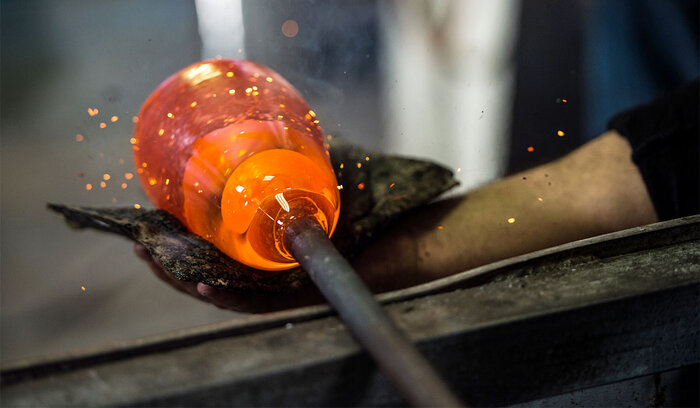
Anneal
[ə-NEEL]
Part of speech: verb
Origin: Old English, 12th century
1.
Heat (metal or glass) and allow it to cool slowly, in order to remove internal stresses and make it easier to work.
2.
(Biochemistry) Recombine (DNA) in the double-stranded form.
Examples of Anneal in a sentence
"Rather than painting his stained glass, Paul chose to anneal the colors into the glass."
"At the workshop on silversmithing, we learned how to anneal the silver in order to make it less brittle."
About Anneal
“Anneal” comes from the OId English “onǣlan,” meaning “to burn, heat, or set fire to.”
Did you Know?
Though it may seem counterintuitive, the process of annealing glass and metal by heating them to high temperatures is intended to make them stronger by first making them softer and more flexible. The verb “anneal” is closely associated with “temper” in metalwork and glasswork: The annealing process uses heat to create tougher glass and metal. Yet the process actually requires an overall softening of the materials in order to reduce brittleness. A brittle material is very hard, but can snap easily. By contrast, tempered glass or metal that has been annealed has reduced its internal stress, creating a kind of elasticity that results in far stronger glasses and metals.








